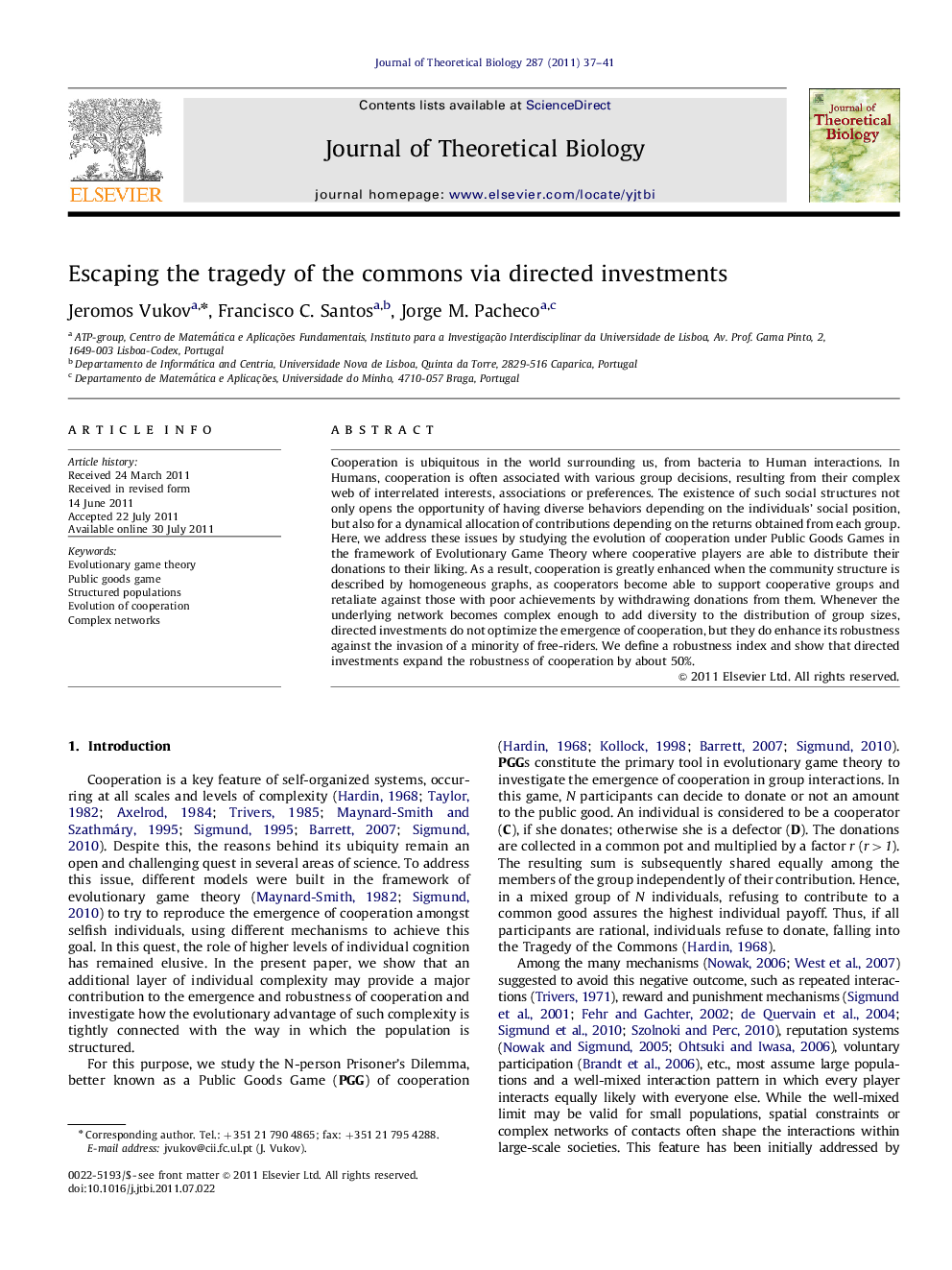| کد مقاله | کد نشریه | سال انتشار | مقاله انگلیسی | نسخه تمام متن |
|---|---|---|---|---|
| 4496924 | 1623923 | 2011 | 5 صفحه PDF | دانلود رایگان |

Cooperation is ubiquitous in the world surrounding us, from bacteria to Human interactions. In Humans, cooperation is often associated with various group decisions, resulting from their complex web of interrelated interests, associations or preferences. The existence of such social structures not only opens the opportunity of having diverse behaviors depending on the individuals' social position, but also for a dynamical allocation of contributions depending on the returns obtained from each group. Here, we address these issues by studying the evolution of cooperation under Public Goods Games in the framework of Evolutionary Game Theory where cooperative players are able to distribute their donations to their liking. As a result, cooperation is greatly enhanced when the community structure is described by homogeneous graphs, as cooperators become able to support cooperative groups and retaliate against those with poor achievements by withdrawing donations from them. Whenever the underlying network becomes complex enough to add diversity to the distribution of group sizes, directed investments do not optimize the emergence of cooperation, but they do enhance its robustness against the invasion of a minority of free-riders. We define a robustness index and show that directed investments expand the robustness of cooperation by about 50%.
► We study the evolution of cooperation in the framework of Public Goods Games.
► Cooperative players are able to distribute their donations to their liking.
► Directed investments greatly enhance cooperation on homogeneous graphs.
► Established cooperation is robust against the invasion of free-riders.
Journal: Journal of Theoretical Biology - Volume 287, 21 October 2011, Pages 37–41